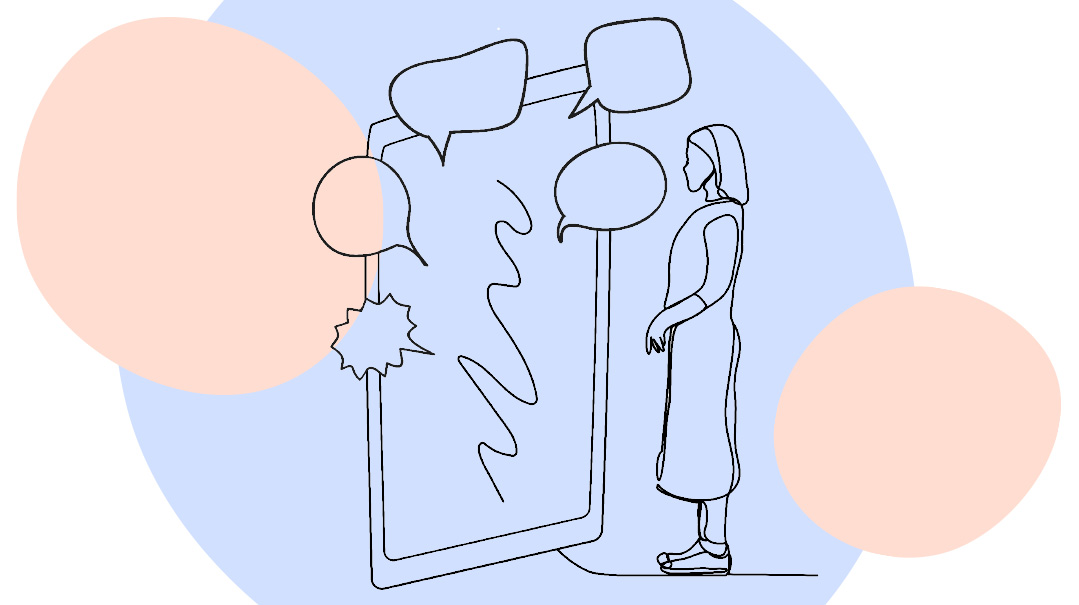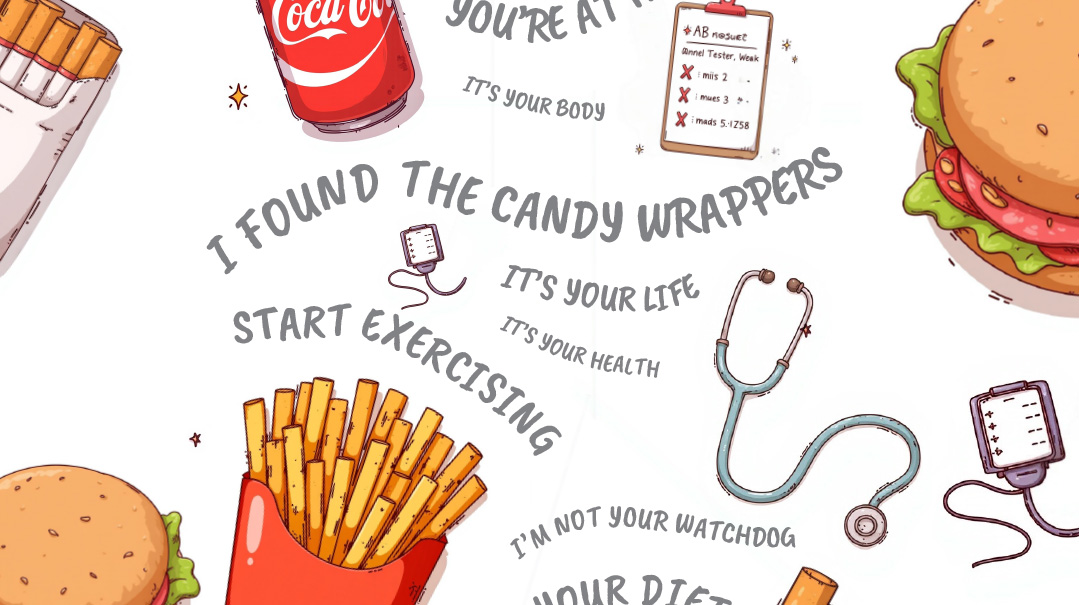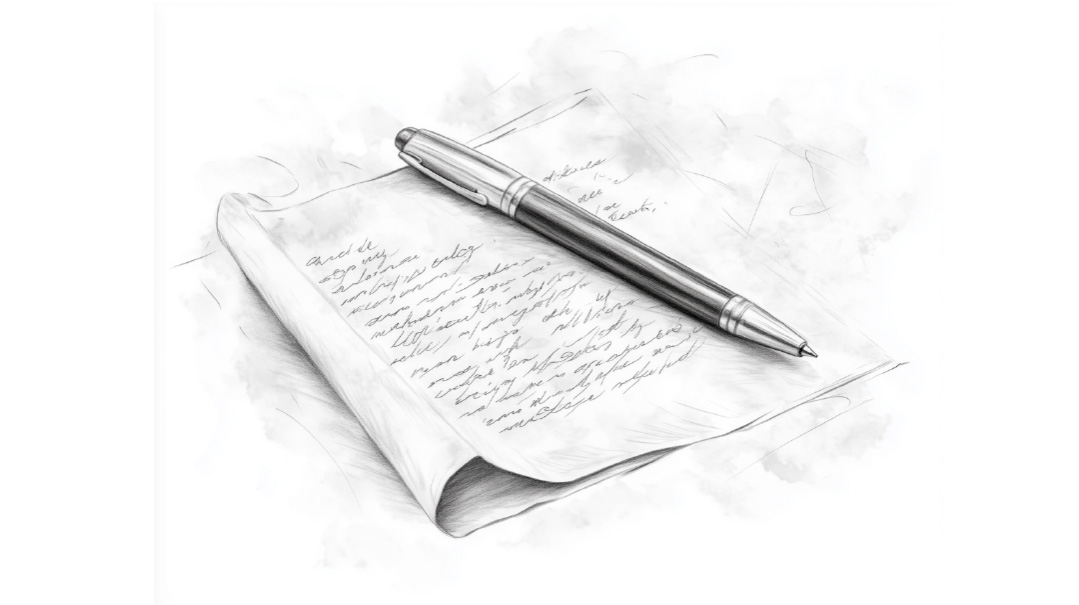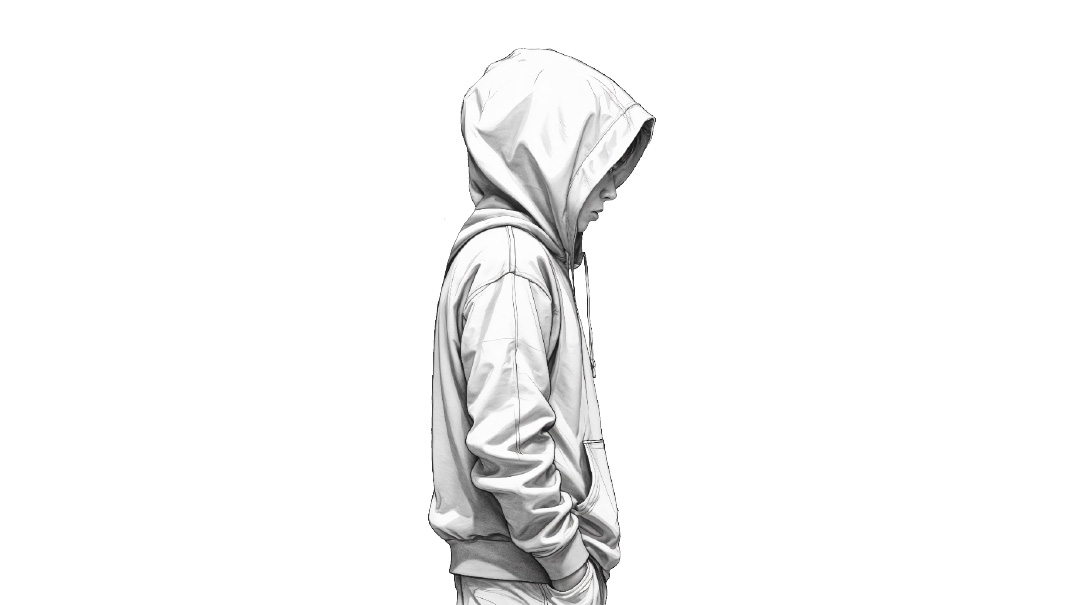We Have a Weight Problem

We aren’t here to talk about my stories — we’re here to talk about our society

I’ve been writing this article in my head for two and a half years, but it’s taken me this long to get the courage to finally publish it.
The absolute last thing I ever wanted to discuss in a public forum is body size, weight stigma, fat-shaming, and body image. This is the most sensitive, painful, and raw area of my life, and I’m a private person. But I couldn’t stay silent any longer.
Family legend has it that I was a very tiny infant who wasn’t growing well. My mother tells the story, saying that she davened for me to grow up to be big and strong. The joke is too obvious; someone always says it: “I guess you davened too hard!”
I wasn’t tiny for long. I became a fat toddler and a fat elementary school kid. I was fat in middle and high school, I was fat in seminary, I was fat in shidduchim. And now I’m married and I’m still fat. It’s important to understand that I’m not using fat as a derogatory word. It’s simply a neutral statement to describe my size — the same way you’d describe someone as skinny, tall, short, or blonde.
I have a lifetime of traumatic moments of being scolded, shamed, and treated differently because of my size. I could write an entire book about it. But we aren’t here to talk about my stories — we’re here to talk about our society.
What happened two and a half years ago that caused me to start writing this in my head? Well, I got married. And frankly, I was pretty shocked. How could I not be, when I’d spent the previous ten years being told that no man would ever want to marry me if I didn’t lose a lot of weight?
It wasn’t until I got married that I realized just how damaging this message really was. You see, for all of my years in shidduchim, I clung to this idea that somewhere out there was a guy who would look past my appearance and appreciate the person I am on the inside. So when I met my husband and the dating got serious, I thought I’d found the man who would do just that.
The first time my husband told me that I’m beautiful, I was a little confused (to put it mildly). Why would he say that? It’s okay to just appreciate who I am on the inside. That’s all I could ever hope for, right? That’s what I’d been told my whole life: I’m not beautiful. I’m fat. I thanked him for saying it, but I didn’t believe him.
And here’s why I’m writing this article: we’ve been married for two and a half years. Baruch Hashem, we have a great relationship and I consider myself so fortunate. But no matter how many times he compliments my appearance, I struggle to believe him. Maybe one day I will.
And every time I meet a single woman who tells me she hopes to find a man who will look past her size and love her for who she is on the inside, my heart breaks. I need her to understand that her future husband will love her in her entirety. For the person she is on the inside — but also for the person she is on the outside, for how she looks.
I knew I needed to speak up, but it was so uncomfortable. I agonized over it for so long, and finally, one Motzaei Shabbos, I decided to just do it. I shared my story online, and asked everyone to share theirs.
I thought I’d get a dozen stories. Maybe two dozen. I thought I’d been through it all, that nothing would shock me.
Instead, thousands and thousands of people opened up in my messages. And over the course of the next 72 hours, as I read the raw emotional messages from strangers around the world, I discovered, with increasing horror, the depth and breadth of the problem.
Here’s what I found:
The trauma starts really early.
My earliest memories of being shamed for my weight go back to when I was about five years old, and I’m certainly not alone. I heard from women who were put on their first official diets at eight years old. I heard from a woman who was put in Overeaters Anonymous at age 13. I heard about children being deprived of the family’s Shabbos party because they were “too fat.” Someone told me a story about watching a young child do a series of jumping jacks before his mother would allow him to eat a candy. One woman told me she was forced to bring fruit to a friend’s birthday party because she wasn’t allowed to eat the cake.
The most chilling part of these stories? I heard from so many women in their fifties, sixties, and seventies. They haven’t forgotten; the pain still lingers.
Many of the comments come from loving relatives.
It was really devastating to see how many of the traumatic stories were a result of loved ones, many of whom likely had really good (yet thoroughly misguided) intentions. I heard from so many people who’d received offers of money, prizes, or new clothes for when they lose weight. Mothers who pushed their children to forgo treats, remain hungry, or work out excessively. There were mother-daughter trips to Weight Watchers, daily weigh-ins, and diet books as birthday gifts.
So many tales were told of relatives saying, “You’d be so pretty if only you’d lose weight.” A child was scolded for eating the doughnut that her school had given out for Chanukah — even though everyone else in the class had eaten one, too.
It’s important to acknowledge here that a huge percentage of these stories mentioned that their mothers (and sometimes fathers) struggled with weight and body image themselves, and that led to them being extra critical of their children. I would venture to suggest that these parents want to spare their children the suffering they endured, but inadvertently continue the chain of body shame.
The hardest to read (and hardest to write about) are the comments that just seemed… cruel. Thankfully, my own parents never shamed me, but sadly, that is not the case for everyone. I heard from more than one woman whose mothers avoid them in public because they’re ashamed of their (adult) child’s weight. Someone’s grandmother told her, “I love you the least because you are the fattest.” I heard from a handful of people who won’t name their children after deceased grandparents because those grandparents always called them nicknames like “fatty” or “fatso” as a child. I heard from so many about relatives grabbing chunks of their fat to illustrate the need for weight loss.
These stories are horrifying, but we need to tell them so we can understand the depth of the problem.
Strangers’ comments really sting.
Yes, many comments came from relatives — but too many strangers feel entitled to speak up about someone else’s size. A common thread in so many of the stories I read was the humiliation suffered by women shopping in clothing stores or gown gemachs. I remember the sheer embarrassment I felt when the sales lady helping me called across the busy store to her associate, “What’s the biggest size we have in this dress?”
Way too many women told me that shopkeepers simply sent them out of the store, saying, “We don’t carry your size here,” or refused to let them try garments on. I’ve also heard a lot about shopkeepers scolding teens, and even kids, “If you weren’t so fat, more clothing would fit you.” So many women told stories of leaving stores in tears because nothing had fit, everything ran too small, or they were criticized for liking styles that aren’t “flattering enough for a big girl.”
I heard from women (and frankly, experienced myself) about the pain of trying to get a gown in a larger size. I heard about teenagers who walked into a gown gemach and were offered a matronly mother-of-the-bride dress, or even a maternity gown.
And then there are the stories from people who had interactions with complete strangers. I heard from a woman who was told at the gym (of all places!), “Don’t bother, you’ll still be fat.” One woman related how she was approached by a stranger in the grocery store who handed her a business card. “I can help you,” the woman said. “I’m a nutritionist.”
Shidduchim is a really, really, REALLY big problem.
With so much talk over the years about the “shidduch crisis,” we should talk about the real crisis. When I posted a poll about the topic, I received over 4,000 responses. Fifty-three percent of the respondents said they were told that their weight would affect their shidduch chances.
Obviously, as I wrote earlier, I struggled so much with shidduchim, in so many ways. And I never dreamed that so many people struggled along with me.
The obsession with “looking good for shidduchim” starts so young. I heard from someone who was told in kindergarten that she wouldn’t find a shidduch if she continued to eat so much. Women told me that they were encouraged, or even forced, to go on diets “for shidduchim” — when they were in elementary school. I heard from girls who were scared to go home after seminary because they’d gained weight and knew their parents would be angry at them.
I heard endless stories about shadchanim telling singles that they’d get more dates if they lost weight, or shadchanim telling singles that they won’t even talk to them until they lose 50 pounds.
I heard from a 32-year-old woman who’s scared to date because of her size. I wish I could say I was shocked, but I know exactly what she means — because I experienced that fear, too.
But here’s the core of the issue: maybe all mothers are looking for skinny girls for their sons, but that’s not what all men are looking for. It’s a fact and a truth, and we need to make that understood.
If you’re single and struggling, know this: A common thread running through the hundreds and hundreds of messages I received is that the majority of them ended with statements like, “Baruch Hashem, I’m married to an amazing man who loves me the way I am,” or “My husband never cared about my weight at all!”
It’s truly disturbing to realize that so many of the painful stories I shared about childhood trauma were directly related to worries about shidduchim. In a world run by Hashem, where zivugim are made by Him, not by a shadchan, how are these comments okay? How can we justify causing eating disorders and lifelong trauma and body-image problems — all for an imagined advantage? Imagine the pain of a young woman who was told that, “You must want that sandwich more than you want a husband.”
Now ask yourself: is it worth it?
Body shaming is not exclusive to fat people:
As a large person, I kind of felt like I had ownership of this issue. And so did many others like me. But the messages started to pour in from people of all sizes. Stories like, “I was a size four growing up, but my sisters were a size zero, so I was always called the fat sister.” I also heard from so many people who told me they were “skinny-shamed,” and how badly it hurt them.
“Someone walked up to me and said straight to my face: ‘Ew! You’re so skinny it’s gross,’” shared one woman. Other women told me they were compared to Holocaust survivors. There was a woman who was asked in a very public setting if she was anorexic (she wasn’t). Another person told me that a total stranger walked over to her and said, “I hate you for being so thin.”
In a world that views fat as bad and thin as good, it seems we’ve allowed ourselves to forget that body shaming of any kind is painful and unforgivable. We can’t compare pain vs. pain. It’s all valid.
This isn’t just a women’s problem.
Most of the responses I received came from women, but men (and their relatives) wrote in as well. One man told me that as a child, while his cousins and friends were playing, he got a talking to about the heart attack he’ll surely have due to his weight. A woman sent me a message saying that her husband was fat-shamed as a kid, and that even though he’s a successful and happy adult who’s married with children, he goes on a crash diet and exercises excessively each time they visit his family. Numerous men told me that they were given nicknames like “fatso” as children. It’s striking to realize that girls will get called “fatso” by their bullies, but boys will be called that by their friends.
The numbers are staggering.
I took some polls to get a better understanding of the volume of this problem. Would you believe that 81% of the 4,000 people who responded to my poll have been the subject of body shaming at some point in their lives? I learned that a shocking 47% of respondents were put on a diet before high school. Thirty-nine percent said that they were given different food or different portions than their peers due to their size. Seventy-five percent of people have been shamed by parents and family members for their weight or size, which is heartbreaking, because you know that those comments, while excruciatingly painful, came from a place of love. It’s awful to see that 71% of people were subjected to unsolicited body comments or advice from strangers.
So how does this affect us, as adults, today? Well, let’s start with this: Only 32% of the responders are happy with the body they currently live in. Our bodies are incredible gifts Hashem has given us, but society tells us we can’t be happy with them. It’s so sad to see that 75% of people have avoided social situations due to shame or embarrassment over their bodies.
There’s so much more I can say. So much more pain I can share.
We could talk about doctors who ignore symptoms because the patient is overweight, or doctors who assume someone is healthy because the patient is “normal” weight. We can talk about the scores of people who told me that they avoid doctors because they don’t want to be shamed. There were people who told me that after losing weight due to serious illness, they were told that it was “worth it” because they looked so “good.” I heard from someone whose mother told her it’s a shame she treated her Crohn’s disease because “she looked so skinny when she was sick.” Someone else told me that she was in a coma for three months and lost 50 pounds. When she woke up, a family member told her, “It’s a shame you weren’t in a coma for another month so you could lose more weight.”
I haven’t even touched on the hundreds of stories of body dysmorphia caused by lifelong weight comments. The number of women in my inbox telling me that they look at photos of times they thought they were fat and see how beautiful and healthy they looked is heartbreaking. There were stories about just one comment sending someone spiraling into an eating disorder. I heard from a lot of people who said they were praised all their life for being “skinny” and when they gained a few pounds and were a normal, healthy weight, they felt intense shame for no longer being praiseworthy.
I heard so many stories of people having food grabbed away from them, because they were “too fat” or because the food was “too unhealthy.” The perpetrators ranged from parents and grandparents, to teachers, classmates, aunt and uncles, and even bosses.
I heard stories of parents, teachers, principals, and even therapists telling people to lose weight so they could do better socially and make more friends. I heard of kids having to switch schools because of incessant weight-related bullying.
The stories are endless. The pain is endless. I could go on and on. I asked people to share what they had learned from all of the stories I had posted. So many people expressed with sadness and relief that they were not as alone as they always felt they were. And countless others said that their eyes were opened to just how impactful their seemingly innocent comments were, and how even just one well-meaning comment can stay with someone for an entire lifetime.
So what now? How can we do better?
I don’t blame anyone individually; we’re all products of the society we live in. I don’t have all the answers, but it’s pretty clear that we need to change. We need to break cycles. We need to reverse stigmas. We need to adjust our messaging. We need to reevaluate our priorities. We need to watch our words and examine our biases.
This conversation isn’t about weight loss, diets, or anything like that. It’s about love and compassion — for others, but also for ourselves.
Here’s one final poll I did: I asked people if their perception of a person changes based on their size. Sixty-five percent of people admitted that yes, it does. But truthfully, if we examine deep inside ourselves, I think that number should really be closer to 100 percent. I want to say I don’t have a bias, given my lifetime of pain around this issue. But if I’m honest with myself, of course I do. I work on it. I try not to make assumptions about others. I used to see someone significantly larger than myself and think, “Well, at least I don’t look like she does.” Just yesterday, I saw someone like that. Instead, I thought, Wow, I can’t imagine how much pain she’s holding. I once would look at skinny friends and family and covet their metabolism — or even their lives. Now that I’ve read all of these stories, I look at them and understand that they have experienced their own set of difficulties and pain. We are all so much more than the way we look.
I’m not perfect yet, but I’m working on it. We can all try to work on it.
And for now, that’s a good start.
Miriam (Pascal) Cohen is a food blogger, recipe developer and author of three cookbooks. You can find her recipes in Mishpacha’s Family Table or on her website, Overtime Cook.
(Originally featured in Family First, Issue 826)
Oops! We could not locate your form.







